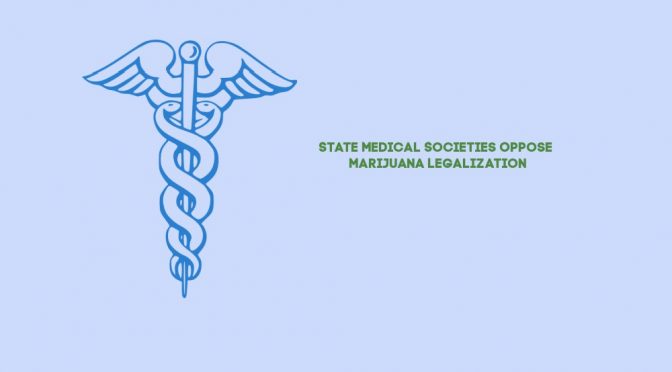Recently the medical societies of Delaware, New Jersey, New York, Ohio, and Pennsylvania joined together to express mutually shared concerns about efforts to legalize marijuana by state governments. Also in late October, the family of a California woman brought a wrongful death lawsuit against the maker of an edible product bought at a San Diego pot shop.
Legalization continues to present serious public health concerns. The societies issuing the warning represent tens of thousands of physicians. Their statement echoes our view that marijuana legalization is an anti-science policy. Here is a copy of the press release that the state of New York’s society released:
These doctors state that:
“We appreciate the enormous challenges state policymakers face to address burgeoning budget deficits, but we strongly believe that further detailed research must be undertaken and assessed regarding the effects legalization of cannabis will have on important public health markers, such as emergency department visits and hospitalizations, impaired driving arrests, and the prevalence of psychiatric and addiction disorders. We are very concerned that the long-term public health costs associated with hospitalizations and treatment for psychiatric/addictive disorders could significantly outweigh any revenues that these states anticipate would be received from the legalization of cannabis.
Youth use higher in states with legalization
“Data shows that despite best efforts of states to limit the purchase of legal marijuana to adults, it has also led to a troubling increase in youth use. Overall use by youth aged 12-17 is up in “legal” states while declining in non-legal states, according to a uniform survey of marijuana use conducted by the federal government. The percentage of youth aged 12-17 using marijuana in states where marijuana is “legal” was 7.7%, versus 6.2% in non-legal states (NSDUH State Reports 2016-2017). The University of Michigan’s Monitoring the Future Survey of American Youth reported that between 2017 and 2018 the percentage of 8th and 10th graders who report “vaping” marijuana increased 63%. And according to a 2019 report by the Colorado Department of Public Health and Environment’s toxicology reports, the percentage of adolescent suicide victims testing positive for marijuana continues to increase.
Marijuana and Suicide Concerns
“Between 2011 and 2013, 20.7% of suicide victims between the ages of 10 and 19 tested positive for marijuana (compared with 12.7% who tested positive for alcohol). Between 2014-2016, 22.4% tested positive for marijuana (compared with 9.3% for alcohol) And, in Colorado, the annual rate of marijuana-related emergency department visits increased by 62% from 2012 to 2017 and marijuana-related poisoning hospitalization rates in Colorado rose by 143% from 2012 to 2017 (Colorado Department of Public Health and Environment, 2019).
Marijuana and COVID Concerns
“We are in the midst of a world-wide pandemic and we already know that smoking or vaping marijuana can increase patient risk for more severe complications from COVID-19. Additionally, there are concerns about the secondary effects on adults and young people from COVID-19 regarding the increased rates of addiction due to the stress of isolation, boredom and decreased access to recovery resources.
“We further note that the American Medical Association has a recently updated position (H95.924) that continues to assert that ‘cannabis is a dangerous drug and as such is a serious public health concern,’ that the sale of cannabis for recreational use should not be legalized and discourages its use—especially by persons vulnerable to the drug’s effects and in high-risk populations such as youth, pregnant women, and women who are breastfeeding.
“The cost to the public health system from cannabis use will likely far outweigh any revenues that states secure by legalizing marijuana. We must proceed cautiously and pay close attention to the public health impacts in states where legalization has occurred.”
We agree with everything the doctors, medical societies have to say but add the fact that tax income from marijuana always fall far behind projections. To sell this program to state legislators as a way close the budget gap is dishonest.

